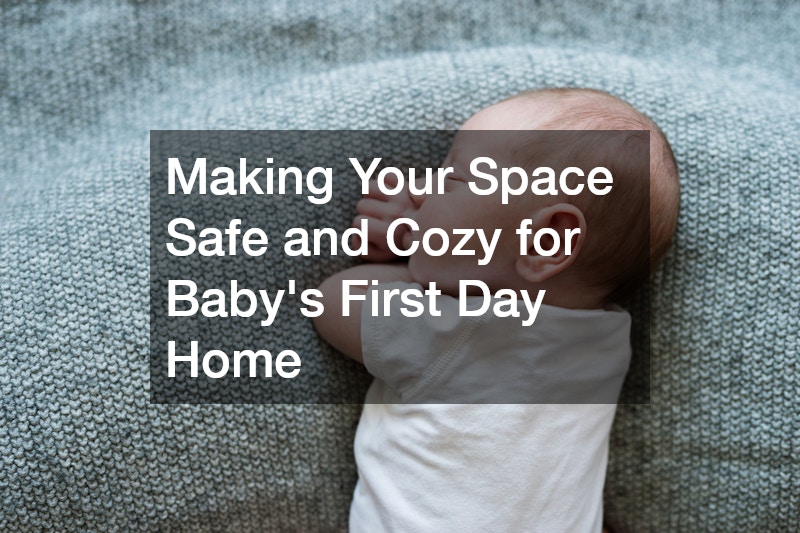Bringing a new baby home is one of the most exciting milestones for any family. The moment is filled with anticipation, joy, and a little bit of nervous energy as you step into a brand-new chapter of life. Long before the big day arrives, however, there is an important phase of preparation to make sure your home is ready for the tiny new arrival. A safe, clean, and comfortable space is essential not just for your little one’s health and well-being, but also for your own peace of mind as a parent.
Many first-time parents are surprised by how much there is to consider when creating the perfect environment for a newborn. It’s more than just having a crib ready or stocking up on diapers—though those are certainly important. The process often involves thinking about air quality, water safety, cleanliness, and the arrangement of furniture and baby gear to ensure easy access and hazard-free movement. Every detail matters, from the softness of the flooring underfoot to the quality of the paint on the nursery walls.
Preparing your home also means evaluating existing systems and fixtures that you may not have paid much attention to before. Things like hidden dust in your ventilation system, minor plumbing issues, or even the placement of appliances can all impact the comfort and safety of your new family member. With a little planning and a focus on both functionality and coziness, you can make your living space a true sanctuary.
Whether you live in a small apartment or a large family home, the same guiding principle applies: every step you take before the baby arrives can make those first days together smoother and more enjoyable. In the sections that follow, we’ll walk through practical and thoughtful ways to prepare different areas of your home so you feel confident, relaxed, and ready to welcome your newborn. These tips can help you create an environment that is not only functional but also warm and nurturing, ensuring you and your little one start your journey together in the best possible way.
Improving the Air Your Baby Breathes
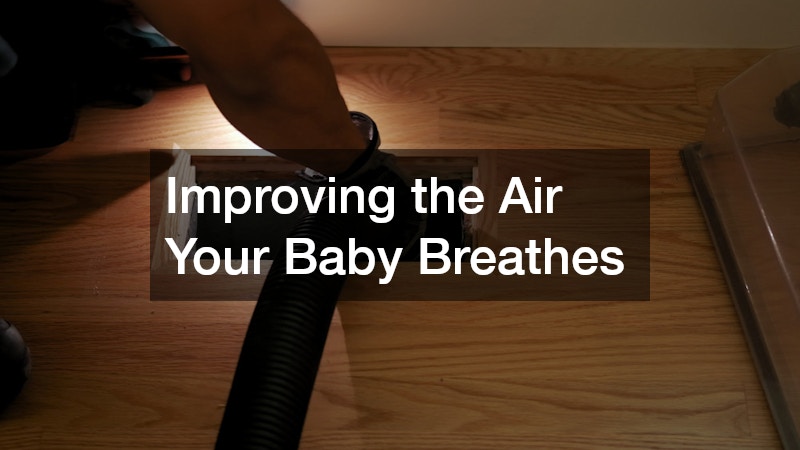
The air inside your home plays a crucial role in your newborn’s health, especially since babies have developing lungs that are more sensitive to airborne particles. Dust, pet dander, pollen, and other microscopic contaminants can accumulate in your ventilation system over time, often without you realizing it. If these particles circulate in the air, they may cause respiratory irritation or trigger allergies. Scheduling a thorough cleaning of your home’s ducts before your babys first day home can make a noticeable difference in air quality.
When getting a professional air duct cleaning, they remove built-up debris, mold spores, and other allergens that standard cleaning methods can’t address. This step can improve airflow, reduce odors, and help your heating and cooling systems operate more efficiently. It’s a proactive measure that benefits everyone in your household but is especially important when you’re introducing a newborn to the space. Pairing this service with regular filter changes in your HVAC system ensures that the air remains fresh and clean throughout the year.
For extra protection, consider keeping windows closed on days with poor outdoor air quality and running your ventilation system on a clean cycle. This creates an environment where your baby can breathe easier, promoting restful sleep and overall well-being from day one.
Choosing Soft, Comfortable Flooring for the Nursery
The nursery will be a hub of activity in the first few months, so the flooring should be both safe and comfortable. Carpeting can provide a soft surface for parents who will spend plenty of time on the floor playing, soothing, or tending to their baby. It also acts as a sound buffer, helping to create a quieter environment during nap times. Selecting the right flooring at a carpet store before your babys first day home can help create a cozy, welcoming space.
When choosing carpet, opt for low-VOC (volatile organic compound) materials to reduce the release of harmful fumes into the air. Hypoallergenic fibers are also worth considering to limit the accumulation of dust and allergens. Some parents prefer area rugs over wall-to-wall carpet for easier cleaning and versatility in design, though these should still be made of safe, baby-friendly materials.
In addition to comfort and safety, think about maintenance. Babies inevitably bring spills and messes, so choosing a carpet with stain-resistant properties can make your life easier in the long run. Preparing this space now means you can focus more on bonding with your newborn and less on worrying about flooring issues.
Refreshing Walls With Gentle, Non-Toxic Colors
The colors and finishes you choose for your nursery walls can influence the room’s atmosphere and your baby’s comfort. Soft, soothing shades like pale blues, greens, or warm neutrals create a calming effect that can help promote relaxation. Equally important is the type of paint you use, as some paints release chemicals that can linger in the air. Painting well before your babys first day home gives the room time to air out, but choosing a low- or zero-VOC paint minimizes exposure to potentially harmful substances from the start.
A home painter can ensure an even, clean finish without streaks or uneven coverage, saving you time and effort. They also have the tools and techniques to prepare walls properly, addressing any cracks or imperfections before applying the final coat. If you prefer a DIY approach, make sure to ventilate the space thoroughly during and after painting to maintain healthy air quality.
Accent walls or subtle patterns can add visual interest without overstimulating the senses. The goal is to create a visually pleasing, toxin-free space where you and your baby feel comfortable spending time together.
Ensuring Clean Water for Every Sip and Bath
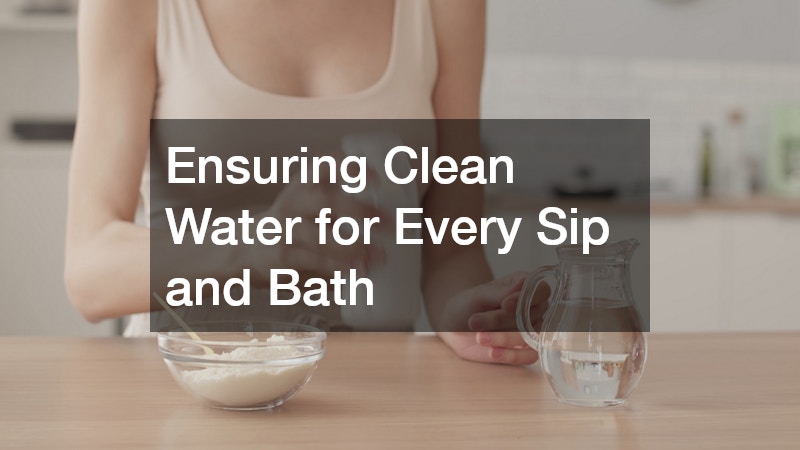
Water quality is something many households overlook until an issue arises, but it’s critical when you’re caring for a newborn. Babies’ immune systems are still developing, so they are more vulnerable to contaminants that may be present in tap water. Before your babys first day home, installing or upgrading a home water filtration system can give you peace of mind.
A good filtration system can remove harmful substances like lead, chlorine, pesticides, and bacteria, making your water safer for drinking, formula preparation, and bathing. Depending on your needs, you can choose between whole-house systems, which treat all water entering your home, or point-of-use filters for specific faucets.
Testing your water beforehand can help determine which type of filtration will work best. Clean, safe water is a basic necessity, and ensuring it is free from harmful impurities is one of the simplest yet most impactful ways to protect your newborn’s health.
Fixing Leaks to Prevent Messes and Mold
Small leaks might seem harmless, but over time they can cause water damage, lead to mold growth, and even attract pests. Addressing plumbing repairs before your babys first day home not only prevents these problems but also helps maintain a safe, hygienic living environment.
Professional plumbers can inspect your home’s pipes, faucets, and fixtures to detect leaks you might not notice. Even slow drips can create damp areas that compromise air quality and structural integrity. Repairing these issues early keeps your home dry and reduces the risk of allergens or bacteria spreading in the environment.
Taking care of plumbing maintenance now means fewer disruptions once your newborn arrives. You’ll have one less worry on your list and more time to focus on your baby’s needs.
Designing a Functional, Relaxing Bath Space
Bath time can be a soothing ritual for babies, but only if the bathroom is set up for comfort and safety. Before your babys first day home, think about how to make this space functional for both the baby and caregivers. Installing slip-resistant mats, organizing bath supplies within easy reach, and ensuring water temperature controls are reliable can make the process smoother and safer.
Bathroom remodelers can help create a layout that maximizes safety and efficiency. For example, adding storage for baby toiletries, installing soft-close cabinets, or adjusting counter heights can make daily routines easier. Good lighting is another factor—bright enough for visibility but gentle enough to avoid harsh glare.
The goal is to make the bathroom a place where you can care for your baby with confidence, free from safety hazards and unnecessary clutter.
Creating a Safe, Efficient Kitchen Setup
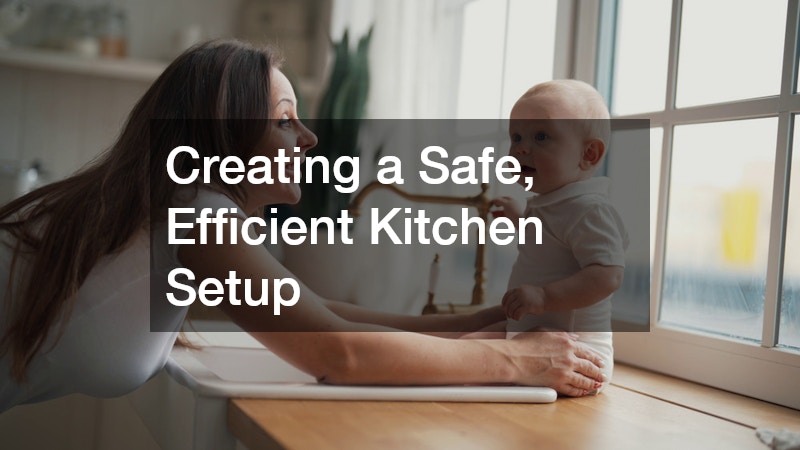
The kitchen often becomes busier after a baby arrives, whether you’re preparing bottles, sterilizing feeding equipment, or making quick meals for yourself. Before your babys first day home, arrange the kitchen so essentials are easy to access. Keep baby items separate from general kitchenware to maintain hygiene and organization.
A kitchen remodeler can suggest changes that improve workflow and safety, such as adding extra counter space, improving lighting, or installing secure storage for cleaning products. Even small adjustments, like rearranging drawers or installing childproof locks, can make a big difference.
Having an efficient kitchen setup not only makes daily routines easier but also reduces stress, allowing you to focus more on caring for your newborn.
Stocking Up on Baby-Friendly Home Essentials
From bottle warmers to laundry appliances, having the right tools on hand makes caring for a newborn easier. Visiting an appliance store before your babys first day home gives you the opportunity to choose energy-efficient, safe, and easy-to-use products.
Consider appliances that make cleaning and sanitizing easier, such as dishwashers with sanitizing cycles or washing machines with gentle settings for baby clothes. Compact appliances can also help save space in smaller homes.
Stocking up ahead of time ensures you won’t have to run errands in those first precious days, allowing you to spend more time bonding and less time worrying about logistics.
Reducing Allergens for a Healthier Home Environment
Indoor allergens can affect anyone, but newborns are especially sensitive. Installing an air purification system before your babys first day home can help remove dust, pollen, pet dander, and other airborne irritants. This is especially important if your home has pets or if family members suffer from allergies.
Choose a purifier with a HEPA filter for maximum effectiveness, and place it in rooms where your baby will spend the most time. Regular maintenance, such as changing filters on schedule, ensures the system continues to perform well.
Improving indoor air quality supports your baby’s respiratory health and can contribute to better sleep and overall comfort.
Adding Personalized Touches to Baby’s Space
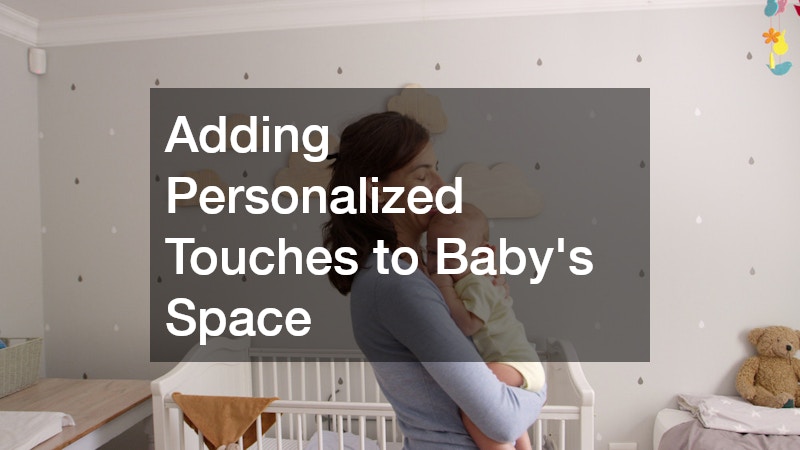
Creating a warm, inviting nursery is about more than just safety and functionality—it’s also about personality. Adding personalized touches through custom embroidery, wall art, or handmade decor can make the space feel special for your babys first day home.
Personalized items like blankets, pillows, and wall hangings can be both decorative and meaningful. Just be sure any items placed in or near the crib meet safety standards and don’t pose suffocation hazards.
These finishing touches bring character to the space, making it uniquely yours while still being safe and comfortable for your newborn.
Welcoming your newborn into a home that is clean, safe, and thoughtfully arranged sets the tone for those early days together. The preparations you make before you bring your baby home will not only create a healthier environment but also reduce stress, allowing you to focus on the joy of bonding with your child. From improving air quality to ensuring the water is safe, every measure you take matters.
These adjustments don’t have to be overwhelming or expensive. Even small steps, like freshening up the nursery walls or organizing the kitchen for quick bottle prep, can make life easier. Tackling bigger projects, such as upgrading filtration systems or remodeling functional spaces, provides long-term benefits for the whole family. By addressing each area of the home thoughtfully, you’re building a foundation of safety, comfort, and love.
In the flurry of excitement and anticipation leading up to your baby’s first day at home, it’s easy to get caught up in checklists and last-minute errands. But remember that preparation is about more than tasks—it’s about creating a space where your baby can thrive and where you feel confident as a parent. Every improvement, no matter how small, is a step toward that goal.
When the big day arrives, you’ll be glad you took the time to plan ahead. You’ll walk through your front door knowing that your home is ready to welcome the newest member of your family. The peace of mind this brings will allow you to fully enjoy the moment, knowing you’ve created an environment that’s as safe and cozy as it is filled with love.
